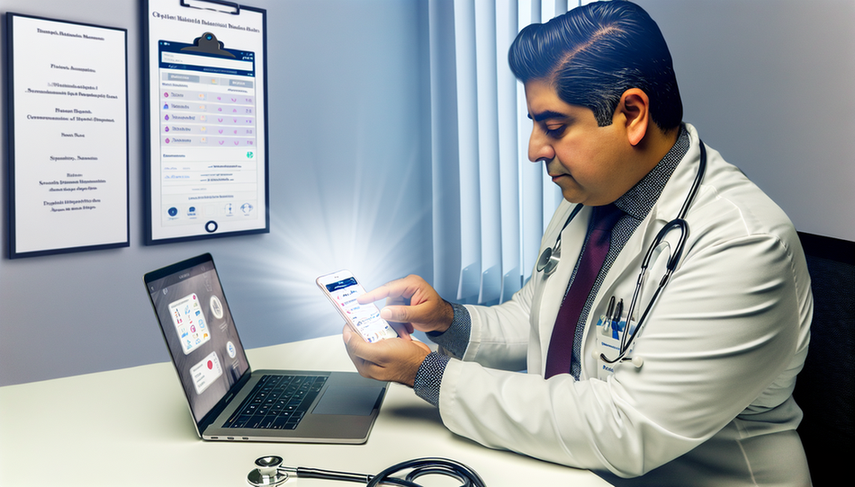Medical Mobile Applications: Clinical Use for Symptom Tracking and Early Diagnosis

In the digital age, medical mobile applications have emerged as powerful tools for symptom tracking and early diagnosis of diseases. These applications not only facilitate communication between patients and healthcare professionals but also enable continuous and real-time monitoring of various medical conditions. In this context, it is crucial to understand how these technologies are transforming clinical practice and improving health outcomes.
Diving into the Clinical Use of Mobile Applications
The use of medical mobile applications has significantly expanded across various areas of medicine. For instance, applications like babyTRACKS have proven effective in tracking child development, correlating crowd-sourced percentiles with traditional clinical measures. This type of application allows parents and healthcare professionals to identify developmental delays more promptly.
In the field of oncology, applications such as MeMoSA® facilitate the early detection of oral cancer, enabling dentists to document oral lesions and communicate with specialists for management decisions. This technology not only enhances early detection but also optimizes the patient referral process.
Moreover, in the context of neurodegenerative diseases, mobile applications are being utilized to track subtle cognitive changes, which could lead to more timely diagnoses of conditions like Alzheimer’s disease. A recent study highlights the potential of these applications to serve as accessible and effective screening tools for cognitive decline (see study).
Conclusions
Medical mobile applications are revolutionizing the clinical use of apps for symptom tracking and early diagnosis. These tools not only enhance the efficiency of diagnosis and treatment but also empower patients by providing them with a more active role in managing their health. However, it is essential to address concerns regarding data privacy and the clinical validation of these applications to maximize their potential in medical practice.
Referencias
- [1] Early childhood tracking application: Correspondence between crowd-based developmental percentiles and clinical tools
- [2] m-Health for Early Detection of Oral Cancer in Low- and Middle-Income Countries
- [3] An update on mobile applications collecting data among subjects with or at risk of Alzheimer's disease
Created 23/1/2025
